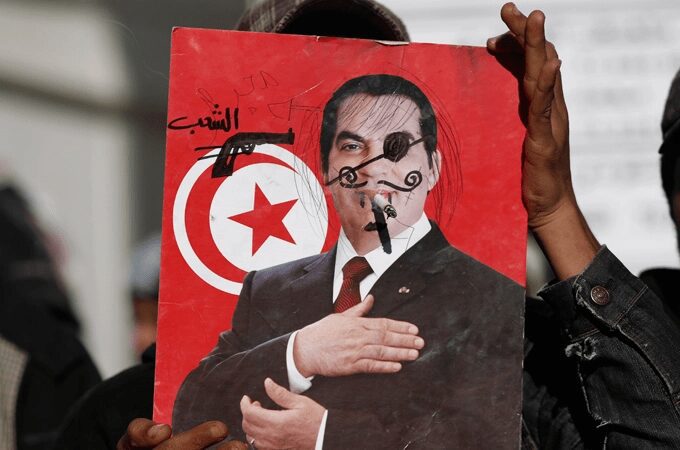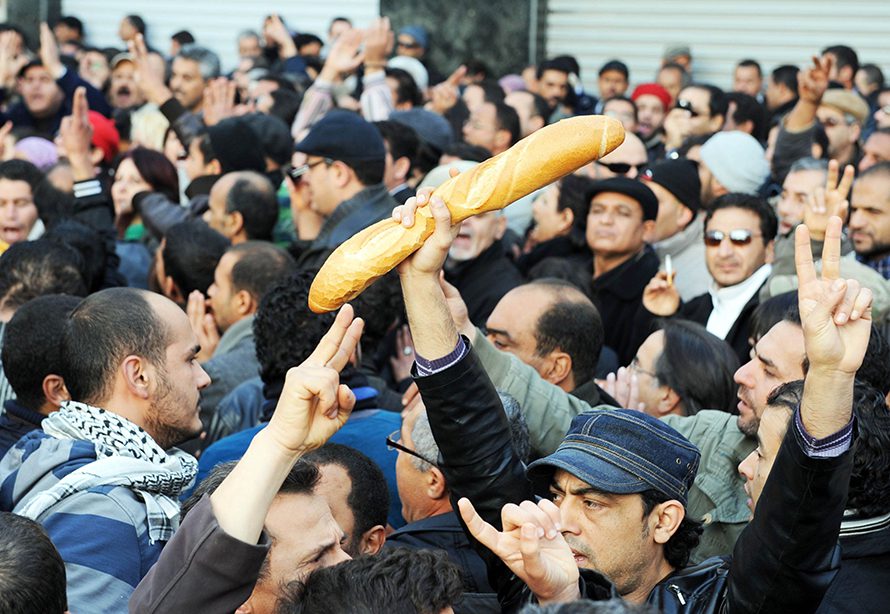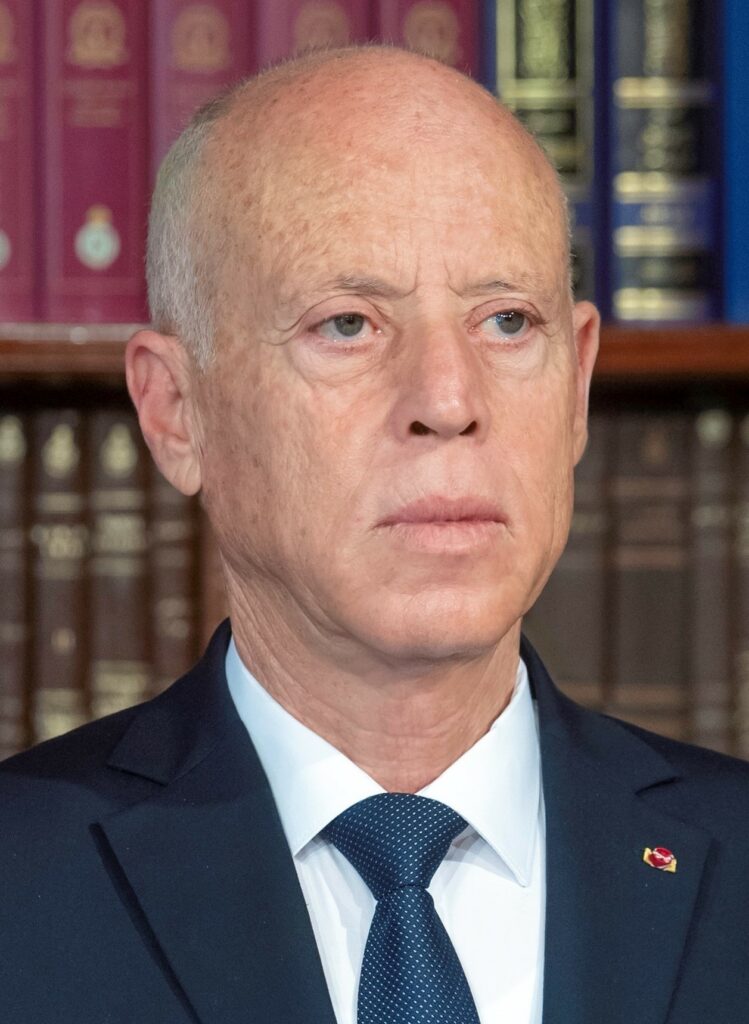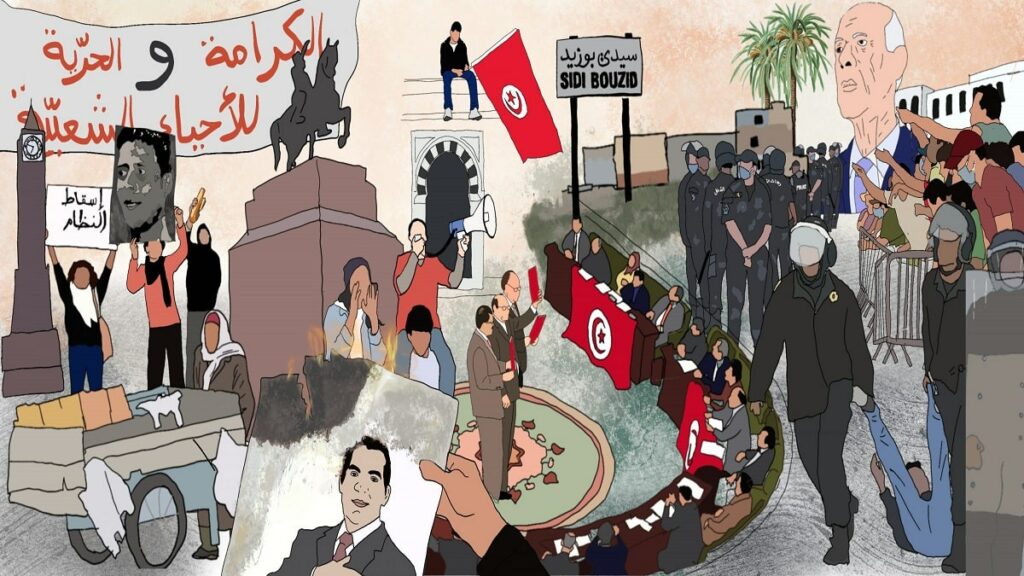The Tunisian Revolution anniversary will be celebrated on January 14th, 2023, across the country. Today marks 12 years since the beginning of the first sparks of the worsening situation in Tunisia.
This has been since December 17, 2010, specifically in the Sidi Bouzid region, which is located in the center of the country. When the young man, Mohamed Bouazizi, set himself on fire in this city in protest of his social status.

Since that date, and after the overthrow of the late President Zine El Abidine Ben Ali in January 2011. For the reason of the dictatorship of his regime that ruled Tunisia for 23 years.

After raising slogans denouncing Ben Ali’s departure, Tunisians thought they would take to the streets shouting in unison, “Bread and water, and NO for Ben Ali”, “Dégage” and so on.
Political Islamists back to Tunisia:
With the beginning of the entry of the Islamists and their encroachment. And started to spread in the country, after Ben Ali excluded them from the Diaspora for years. Because they do not agree with his regime and rule, and there was a political atmosphere that was not agreed upon.
Thus, the Islamists took advantage of the bad situation in Tunisia in 2011, during which Rached Ghannouchi the head of the Ennahda Movement appeared. Who returned to his homeland after he was banned from entering his motherland by political orders.
Presidents of Tunisia during the Tunisian Revolution:
During this revolutionary decade, many presidents succeeded in Tunisia, who did not stay in power for long. It is considered one of the rare periods in the history of Tunisia, in terms of the number of personalities that ruled Tunisia.
I mention among them the Interim President of the Republic, Fouad Al-Mebzaa. After the escape of Ben Ali, for a period that extended from January 15, 2011, to December 13 of the same year.
This was after the announcement of the Tunisian Constitutional Council definitively, vacating the position of the President of the Republic. According to Article 57 of the Tunisian Constitution.
Then Dr. and politician Mohamed Moncef Al-Marzouki assumed the position of President of the Republic. On an interim basis, from December 13, 2011, to December 31, 2014.
It is the longest period of temporary rule that Marzouki exploited. the National Constituent Assembly elected him as interim President of Tunisia on December 12, 2011,
This is after obtaining a majority of 153 votes, compared to three opposing votes. Two abstentions and 44 white cards representing 202 members out of the total number of 217 members.
Until the end of Marzouki’s term, the head of the Nidaa Tounes party, Beji Caid Essebsi, was legitimately elected the sixth president of Tunisia.
After he won the 2014 presidential elections for which he ran with a percentage of 55.68%. During this, he outperformed his rival, Moncef Marzouki, who got 44.32%.
From July 25 to October 23, 2019, Muhammad al-Nasser, (formerly Speaker of the Assembly of the Representatives of the People). Assumed the duties of the President of the Republic temporarily.
This is after the death of former President Beji Caid Essebsi.
Finally, after the last presidential elections in 2019, constitutional professor Kais Saied was elected President of the Republic of Tunisia. After being sworn in as President on October 23, 2019.
Kais Saied to Carthage presidential:

Let us talk now on this page about our arrival to the constitutionalist Kais Saied, as the last of the Tunisian presidents since 2019 in the Tunisian Revolution. The president reached the Carthage Palace by obtaining 620,711 votes, in the first round of the Tunisian presidential elections 2019.
Before he crossed the second round of the elections and met his political rival, Nabil Karoui. Where he passed the second round, with 2,777,931 votes, equivalent to 72.71%.
Kais Saied is the personality who won the trust of the Tunisian people despite his independence, and his candidacy without clear programs.
Nevertheless, he won the presidential position by ousting Karoui in a knockout. Despite the latter’s work in advertising for himself, but to no avail.
The social and economic crisis after 12 years of the Tunisian Revolution:
From this point of view, and since that date, Saied has struggled with most of the political blocs, which are striving to overthrow him.
The worsening of the situation and the electrification of the atmosphere within the Tunisian society. and affecting its daily strength by the absence of basic food products and the increase in prices.
As a result, it seems that Saied is losing the popularity he gained during the last presidential elections. For not taking deterrent and strict decisions against the monopolists in the Tunisian market, after the companies producing basic foodstuffs. By raising prices and hiding and withdrawing milk, sugar, and other commercial spaces.
That is why many political parties are seeking January 14, 2023, the date to celebrate the 12th Tunisian Revolution Day. To inflame the Tunisian people by organizing protest movements, to overthrow Tunisian President Kais Saied, and to organize early elections.
